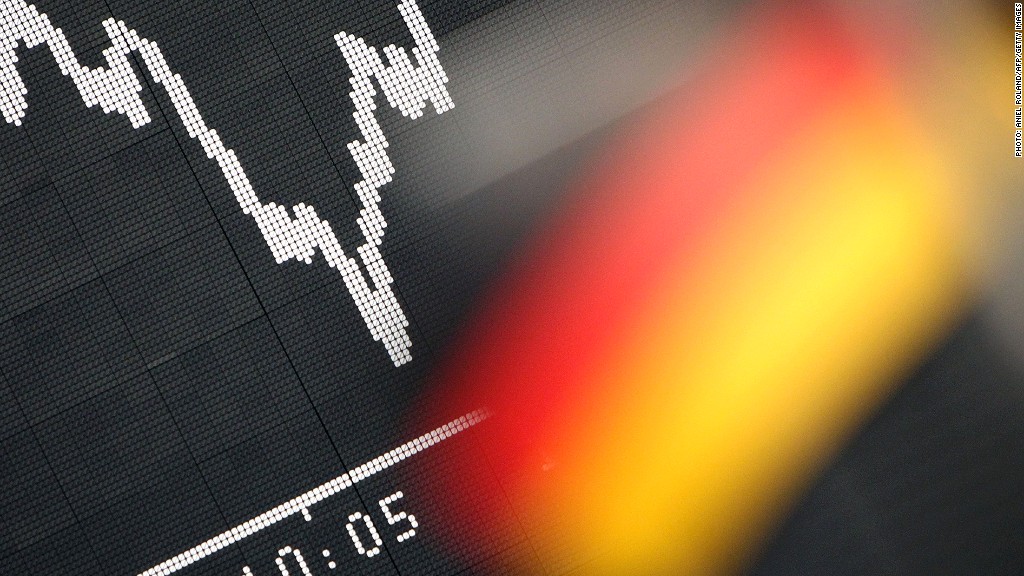 The story of the day – the Euro, the non-Euro and even the non-Europe, is at risk of becoming an exploding factor, a new threshold for a new frontier in Europe, in spite of the Nobel for Peace. It is a movement that is spreading throughout every country, in every social class. It is almost indistinguishable between extreme left and right, and there are even some protagonists in the “moderate” classes, like in Germany.
The story of the day – the Euro, the non-Euro and even the non-Europe, is at risk of becoming an exploding factor, a new threshold for a new frontier in Europe, in spite of the Nobel for Peace. It is a movement that is spreading throughout every country, in every social class. It is almost indistinguishable between extreme left and right, and there are even some protagonists in the “moderate” classes, like in Germany.
It is dividing families and is even making some solid friendships waver.
It is the perverse product of an economic crisis that is cutting down Europe, but also the United Stated (look hard at the hourly wages of the new ‘miracle’ employment in the USA), and is creating problems in China as well. There is a social unrest that has exploded, as some observers have been predicting for some time, since well before those enraged today realized they had a reason to be angry. I remember Jean-Claude Juncker clearly, Luxembourg Prime Minister at the time and respected President of the Eurogroup, a Christian Democrat, who in the beginning of 2008 went around Brussels counseling that this crisis – which back then had just begun and which in Europe still was barely felt at all – threatened “to attack social cohesion.”
Juncker was not and is not an extremist. He is a convinced Europeanist, actually quite a bona fide Europeanist (in spite of many flaws in his country’s banking system), he is a Christian Democrat, therefore, precisely a man with “traditional” characteristics, but one who saw what was happening. And he was the heart of the European Union, the President of that single currency club, which so many today would like to make disappear. From there he saw what was about to happen and that so many national governments didn’t want to see and that, in fact, he decided to confront in the worst way. And then, at the beginning of 2008, there was time to react.
Germany, the much protested Germany, had already restructured its job market ages ago. It is true, some earn little, perhaps too little but the country maintains itself – services function, they don’t make cuts to public employees or in hospitals. Not even in schools. The GDP rises. Do they act unfairly with other partners? It is true, they did it with Greece and they are doing it with everyone regarding the export issue. But the leaders of that country, supported by their citizens, made it work, and now in Europe they have “what it takes.”
What was happening in the meantime in Italy? Deplorable governments didn’t implement any policies that Romano Prodi and Carlo Azeglio Ciampi’s administration recommended for the “post Euro entry.” Our public debt climbed, climbed, climbed ….. No growth policies were made for education, industry, research and employment. The country was left adrift and the results are right in front of us. You can say what you want, but there is unemployment, tax evasion is obvious, just like tax burden. The inability of the system to support growth is obvious and the blame is not external but inside our own country. Just like in Greece, where they fixed the public accounts for years, giving 16-17 monthly salaries to public employees with productivity below zero. This is not the Finns or Germans’ fault.
Should we stop to think, just for a moment, that the people who are the angriest about the Euro or the EU are precisely the citizens who, often, supported those governments that weren’t capable of handling, first off, their own country? France, as soon as Sarkozy left the Presidency, is unraveling, they’re losing “A” status from rating agencies as if it were raining; Great Britain is a country that for 30 years has forgotten the ones at the bottom of the totem pole – the poor, who are getting poorer and angrier. It is a wealthy country, but in the sense that there are a few who divide the wealth. I go to London often, part of my family lives there; I have seen with my own eyes people becoming impoverished – all you have to do is look on the metro and bus to realize it. Then there are angry people even in countries where people are doing rather well, Holland, Austria and Belgium. But these are movements that won’t last long. They appear, make a statement during election time, then disappear, leaving the podium to a more moderate cause. And then, putting everything together, these countries don’t do ½ of what Italy does, in relation to number of citizens or GDP.
The question is that poorly governed countries, which were unable to initially create the conditions to defend themselves from the crisis, much less to deal with them, were able to rip-off their citizens for the umpteenth time, convincing some of them that the fault lies with “Brussels.” Without saying it is the national politicians who decide there, not others. Whoever has the Euro and knows how to use it succeeds, and whoever doesn’t know how to use it fails. The blame is not on the single currency, which in the end, is only currency (which, we are convinced that until now it saved us, keeping us afloat on a huge raft); it is not an industrial policy, a battle of corruption and poor governing, of abandoning university, of healthcare – but of responsibility.
Lorenzo Robustelli










![[foto: CEPS]](https://www.eunews.it/wp-content/uploads/2022/03/sanzioni.png.webp)
